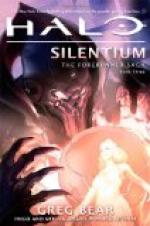“You look like an Eastern potentate, you are so silent and serious,” she told him once. “Do I bore you so horribly, or is it Miss Letchworth?”
“I am not bored at all, Duchess,” answered the boy simply; “I am thinking.”
“And what are you thinking about?”
Tommy hesitated. Under her frivolous manner he knew the Duchess had a heart, and very human sympathies.
“I want to be a violinist,” he said slowly, after a pause during which the Duchess, with a little shriek, rescued her salad, which William had pounced upon.
“A violinist!”
“Hush! Please don’t tell.”
“Of course I’ll not tell, but——”
“Have you heard him play?”
“Joyselle? Of course I have.”
“Well?” asked Tommy in quiet triumph. What more could anyone say?
The old woman smiled sweetly at him. She, too, had been young, and remembered. And there was in this little, plain boy a certain strain of blood that she loved; his grandmother had been a Yeoland.
“So you really love it that much, do you? It means hard work, Tommy.”
“I know,” nodded the boy gravely.
And his mother, seeing his gravity, feared that he was not being sufficiently quaint to amuse the old lady, and screamed down the table at him to tell the Duchess the story of the jibbing pony at the Irish race meeting. The story was not told.
On her right hand Lady Kingsmead had the local M.F.H., a dull man with his head full of hounds, as she expressed it. But on her left sat Joyselle, and as a guest he was certainly perfect. Lady Kingsmead in pale pink and pearls was good enough to look at, and feeling that she wished to be made love to, he made love to her, as was his duty. And he did it well, for he was an artist. He was not conspicuous, or over-impassioned, or over-adoring (very few women like unmixed adoration), but he was amusing, a trifle outrageous, admiring, and tactful. He was also amazingly handsome.
Down to her left Lady Kingsmead could see Carron being bored to death by the wife of the M.F.H., who, someone said, if he had his head full of hounds and foxes, certainly had hers full of coals and blankets. For the vicar was a bachelor, and poor Lady Brinsley hated hounds and foxes, and really loved helping the poor. And being of the simple-minded who talk to strangers out of the fulness of their hearts, she was telling him sadly of the shameful way in which the coal-dealer had cheated poor, dear Mr. Smith.
Mentally damning poor, dear Mr. Smith and his friend, as well as the whole race of coal-dealers, Carron watched Brigit as she talked to Theo and her other neighbour, Pat Yelverton, who watched her in quite evident surprise.
“May I be rude and make a personal remark?” he asked her presently. She smiled. “Yes.” Yelverton hesitated, and then said slowly: “You have changed wonderfully since I last saw you, Lady Brigit.”




